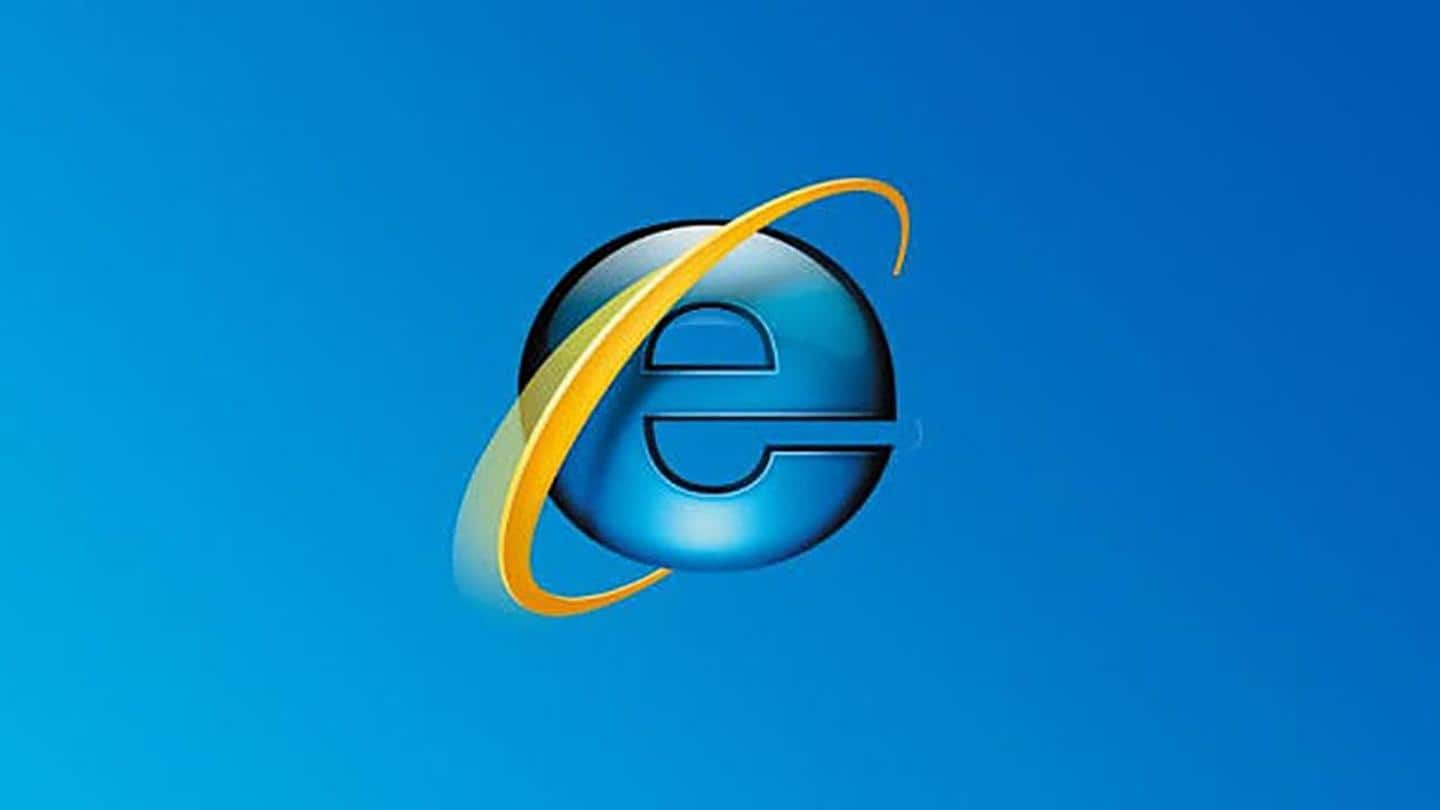
After 25 years, Microsoft is finally retiring Internet Explorer
What's the story
After silently retiring its Windows 10X operating system, tech giant Microsoft has announced that Internet Explorer will not be supported after June 15, 2022. The browser has served Windows users faithfully since 1995 until Chromium-based browsers took over with more modern features, security, better user interface, and compatibility.
However, the Long-Term Servicing Channel (LTSC) of Windows 10 will still include Internet Explorer next year.
Functionality remains
IE mode built into Microsoft Edge will exist until 2029
Internet Explorer was first launched in 1995 for desktop web browsing. Even after introducing its Chromium-based Edge browser for Windows in 2015, Microsoft realized that many businesses still rely on websites optimized for older browsers.
IE mode for Edge, introduced in 2019, still packs support for older ActiveX controls and legacy websites. Microsoft has promised IE mode will exist until at least 2029.
Announcement
Microsoft branded Internet Explorer as 'compatibility solution,' not web browser
Since transitioning to Edge, Microsoft has branded Internet Explorer as a "compatibility solution" rather than a browser.
Microsoft Edge program manager Sean Lyndersay said, "The future of Internet Explorer on Windows 10 is in Microsoft Edge."
He also added, "The Internet Explorer 11 desktop application will be retired and go out of support on June 15, 2022, for certain versions of Windows 10."
Nail in the coffin
Microsoft Office services stop supporting Internet Explorer 11 in August
Microsoft didn't say exactly when Internet Explorer will be kicked off Windows, but The Verge speculates that will happen in or after June next year.
Additionally, Microsoft dropped support for Internet Explorer 11 on the Microsoft Teams web app in 2020. It is reportedly planning to drop IE support from Office 365, OneDrive, Outlook, and other Microsoft Office services on August 17.
Make the change
Microsoft encourages switching to Edge citing security improvements, better support
Frankly, most desktop users have already transitioned to immensely popular Chromium-based solutions such as Google Chrome and Microsoft Edge since Microsoft began encouraging the transition five years ago.
Microsoft's announcement urges you to try out the Edge browser for better website compatibility, streamlined productivity, and better browser security in an age where Microsoft claims "roughly 579 password attacks are attempted every second."